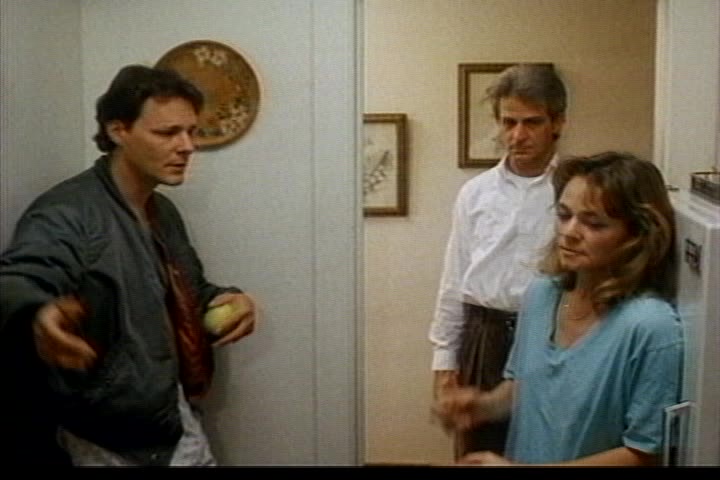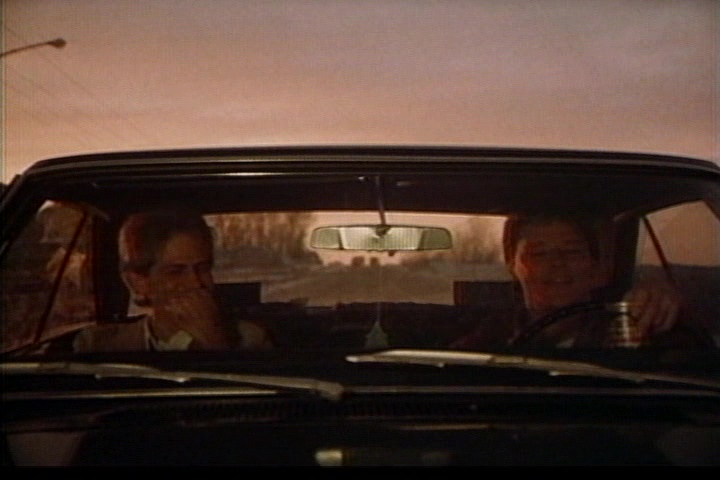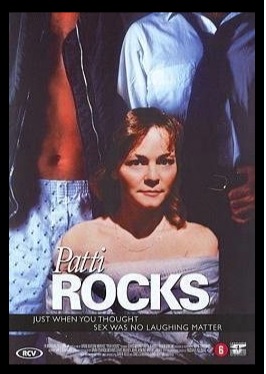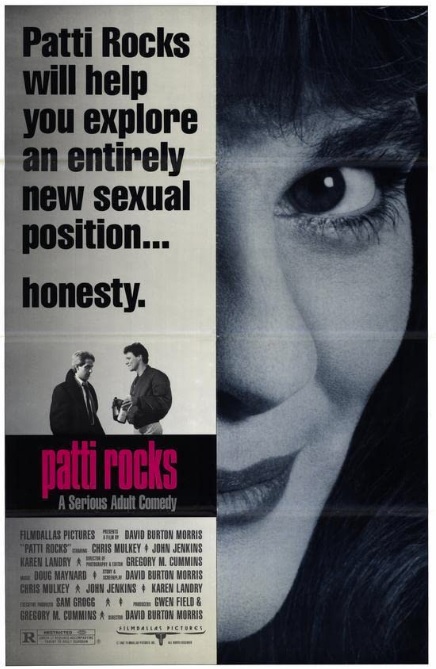| Bob Aulert |

Patti Rocks plays at the Trylon Cinema from Friday, April 7 through Sunday, April 9. Visit trylon.org for tickets and more information.
Not many things from 1988 stand up well in the 21st century. Chevy Chase hosted the Oscars that year, for heaven’s sake. But Patti Rocks, a quiet film of depth and complexity, is just as powerful and perceptive today as it was 35 years ago. Ignore the clothing and the hair styles and the cars and focus on the characters and their conversations with each other. Its themes are timeless. Director David Burton Morris has crafted a film that begins with simplicity but eventually contains major surprises.
The man at the center of the film’s almost-a-lust-triangle is Billy (Chris Mulkey), a not quite young anymore man-child. He’s married with two young daughters but spends his days shuttling back and forth from St. Paul to La Crosse on a series of Mississippi river barges, a life that conveniently gives him ample opportunities to shack up with and discard as many nameless and faceless women as he can rack up. But suddenly there’s one woman — the title character Patti Rocks (Karen Landry) — who he has made pregnant. For once, Billy has to take her seriously. And that scares him, because now he actually has to think about the consequences of his actions.

On a stop in St. Paul, Billy phones up Eddie (John Jenkins), an old acquaintance (friend would be too strong a depiction of their connection) and former boss from when he was working in an auto service department. This story was told in the 1975 Morris-directed film Loose Ends. Indeed, Patti Rocks begins with the screen message “Twelve years later…”. Billy has Eddie meet him for a few drinks, ostensibly to catch up, but his real mission is to convince Eddie to join him in an all-night drive down to La Crosse to let Patti know that he’s married and to convince her to have an abortion. Eddie is hardly an expert in women’s studies — he himself is divorced and plainly unhappy about it — but he’s certainly wiser than Billy (a low bar), and he finally reluctantly agrees.

The first half of the film consists of Billy and Eddie’s late-night drive. Billy fills the trip by drinking multiple beers and regaling Eddie with his philosophy of life, which is mainly comprised of listing the oh so many women he’s screwed and his many nicknames for both the women themselves and the ways he’s used them. Eventually, Eddie wisely distills Billy’s life to a simple credo: “Billy, you’ve got the philosophy of a dog; if you can’t eat it or fuck it, you piss on it and walk away.”

The language is coarse and misogynistic. Indeed, the film initially received an NC-17 rating until it was adjusted to a R rating on appeal. But it’s never pandering or sensationalistic; the bile spewing out of Billy’s mouth is exactly true to his meager intellect and attitude.
Once Billy and Eddie arrive at Patti’s La Crosse apartment, the film transitions from road trip to group therapy session as conceived by Henrik Ibsen. Billy can’t even begin to match Patti’s strength and logic, so he taps out to Eddie to act as his representative. From the very beginning of the encounter Patti proves to be not just more than a worthy opponent, but also nothing like the woman that Billy thought he knew or that Eddie expected. Additionally, over the last third of the film, Billy, Eddie, and Patti all break free of the stereotypes that we originally thought they occupied.
The dialog between the three characters is compact, potent, and undeniably real. Improvisation appears to have been a major component, as there are four screenwriters listed in the credits — Mulkey, Jenkins, Landry, and Morris.
The marketing campaign for Patti Rocks did it a definite disservice, as the one-sheets for the film position it squarely as a somewhat juvenile sex comedy with taglines like “Patti Rocks will help you explore an entirely new sexual position… honesty” and “Just when you thought sex was no laughing matter.” But while a large portion of the story revolves around sex, it’s never particularly sexy. And while there are humorous moments the film is scathingly honest and true, and not very funny at all.
A 2019 Split Tooth Media article noted that when Morris screened the film for preview audiences before its initial release, he often cautioned, “Some of you people might get uncomfortable during the first two acts of this movie. Just wait, OK?”[1] This is wise counsel, because every time a viewer thinks they have this film figured out… just wait, OK?

NOTES
[1] Wright, Brett. “Philosophy Of Dogs: ‘Patti Rocks’ And ‘Problematic’ Art.” Split Tooth Media (Feb 20, 2019). https://www.splittoothmedia.com/patti-rocks/
Edited by Olga Tchepikova-Treon
